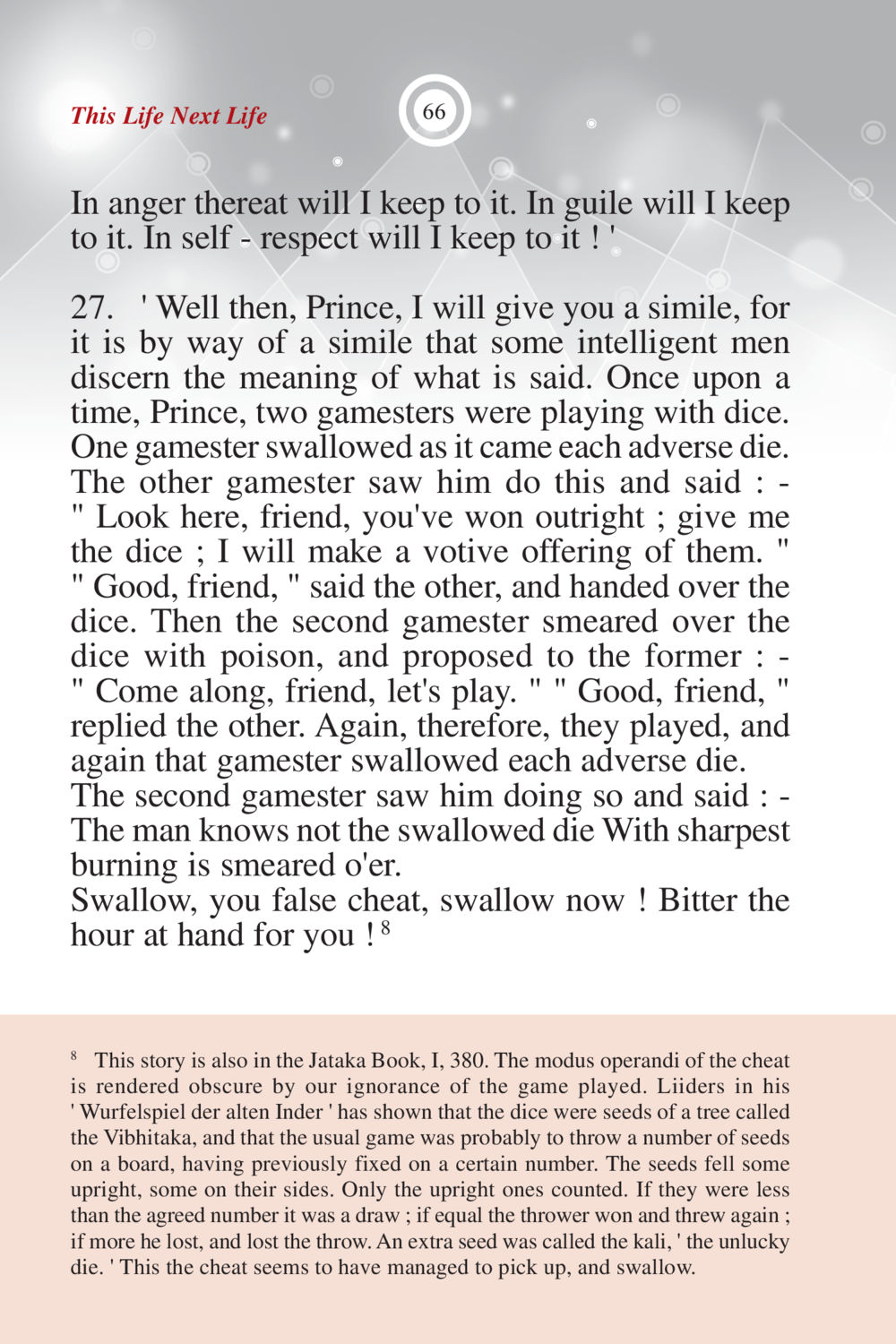This Life Next Life: The Gambler's Tale : หน้า 68/130
ภพนี้ ภพหน้า ฉบับเติมเต็ม : หน้า 68/130 Exploring the themes of deception and self-respect through a story of two gamesters and a game of dice.
1 ครั้ง

สรุปเนื้อหา
This text recounts a fable involving two gamesters engaged in a game with dice. The first gambler swallows every adverse die, while the second deceives him by using poisoned dice. This tale serves to symbolize the danger of ignorance and the consequences of deceitful actions. It echoes themes of self-respect and the cunning nature often found in human interactions. References to ancient Indian gaming practices add depth to the narrative. For more insights, visit dmc.tv.
หัวข้อประเด็น
-gambling strategies
-deception in games
-the nature of self-respect
-learning from fables
ข้อความต้นฉบับในหน้า
This Life Next Life
In anger thereat will I keep to it. In guile will I keep to it. In self-respect will I keep to it!!
27. 'Well then, Prince, I will give you a smile, for it is by way of a smile that some intelligent men discern the meaning of what is said. Once upon a time, Prince, two gamesters were playing with dice. One gamester swallowed as it came each adverse die. The other gamester saw him do this and said: - "Look here, friend, you've won outright; give me the dice; I will make a votive offering of them." "Good, friend," said the other, and handed over the dice. Then the second gamester smeared over the dice with poison, and proposed to the former: - "Come along, friend, let's play." "Good, friend," replied the other. Again, therefore, they played, and again that gamester swallowed each adverse die. The second gamester saw him doing so and said: - The man knows not the swallowed die. With sharpest burning is smeared o'er. Swallow, you false cheat, swallow now! Bitter the hour at hand for you!
8 This story is also in the Jataka Book, I, 380. The modus operandi of the cheat is rendered obscure by our ignorance of the game played. Lieders in his 'Wurfespiel der alten Inder' has shown that the dice were seeds of a tree called the Vibhitaka, and that the usual game was probably to throw a number of seeds on a board, having previously fixed on a certain number. The seeds fell some upright, some on their sides. Only the upright ones counted. If they were less than the agreed number it was a draw; if equal the thrower won and threw again; if more he lost, and lost the throw. An extra seed was called the kali, 'the unlucky die.' This the cheat seems to have managed to pick up, and swallow.
หน้าหนังสือทั้งหมด
หนังสือที่เกี่ยวข้อง
Load More


































































































































